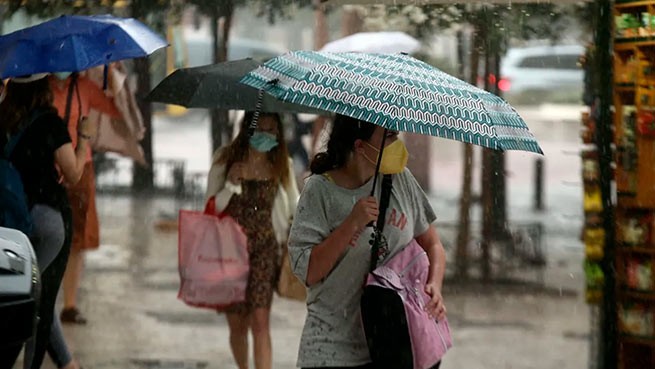The change in weather over 12 months, which affects the change of seasons, is associated with climate change. Why this is happening, how much weather change affects Greece and what summer 2023 will be like, Christos Zerefos, General Secretary of the Academy of Athens, tells.
Heavy rains, uncontrolled fires, low temperatures and prolonged heatwaves are changing the seasons and shifting the summer to become hotter and with more heatwaves. Are the seasons broken? An unequivocal answer was given CNN Greece Mr. Christos Zerefos: “Yes.” At the same time, the seasons are expected to change in the long term. Already last year we experienced a change in weather with rains and floods in the spring, many days of fires burning uncontrollably, high temperatures in winter, turning it into a milder season.
According to Mr. Christos Zerefos, autumn is usually milder and transitions more smoothly into winter, which in turn is warmer, and “summer gets warmer in the long run.” The scientist explains:
“Temperature trends from human intervention, which we used to call “global warming,” are stronger in summer than in winter. It is longer than the warm season. That is, the cold season does not warm up, temperatures do not rise as quickly as in summer, and especially in the hot months.”
The result of extreme weather behavior is that winter and summer behave differently, the expert says:
“So the winter stretches out over more months, gets milder and a little warmer, and the summer gets a lot warmer, which is what causes the mess we’re seeing. That is, milder winters and hotter summers.”
Mr. Zerefos argues that this change in the weather throughout the year, affecting the change of seasons, is due to climate change:
“We’ve had some very extreme climate events this year. We have seen, for example, extremely severe winters in the US, Canada and some northwestern Europe, and extremely mild winters in the rest of Europe, including Greece. We have seen that in this mild winter we have lost half of the rain and snow that should have fallen, necessary for our lands, especially in a geographical area not famous for frequent precipitation. On the one hand, the winter was characterized by low water due to the lack of rain and ice, and on the other hand, these weather phenomena followed the sequence of spring, exceeded it and reached June. So we see that the rainy season has lengthened, and this year we have a reduction not only in winter, but also in summer.”
What awaits us in July and August? What will the weather be like? Will we have more frequent heatwaves or will temperatures fluctuate at normal levels for the season? Mr Zerefos says:
“There are no models that show us how the weather will develop in July and August, and how much this instability that we had this year will affect the local balance of the region. However, in the long term, it looks like we will have milder winters and warmer summers. As for the rest of the seasons, autumn and spring, it is obvious that the first season will be milder and, in my opinion, it will also be the best season of the year, that is, the period from September to November. If the air is not particularly cold, then the autumn will be mild and will join the winter that will come to replace it.







More Stories
The weather will turn bad on Good Friday
Crete "shaking" – two earthquakes this morning
Ecological… tombstones